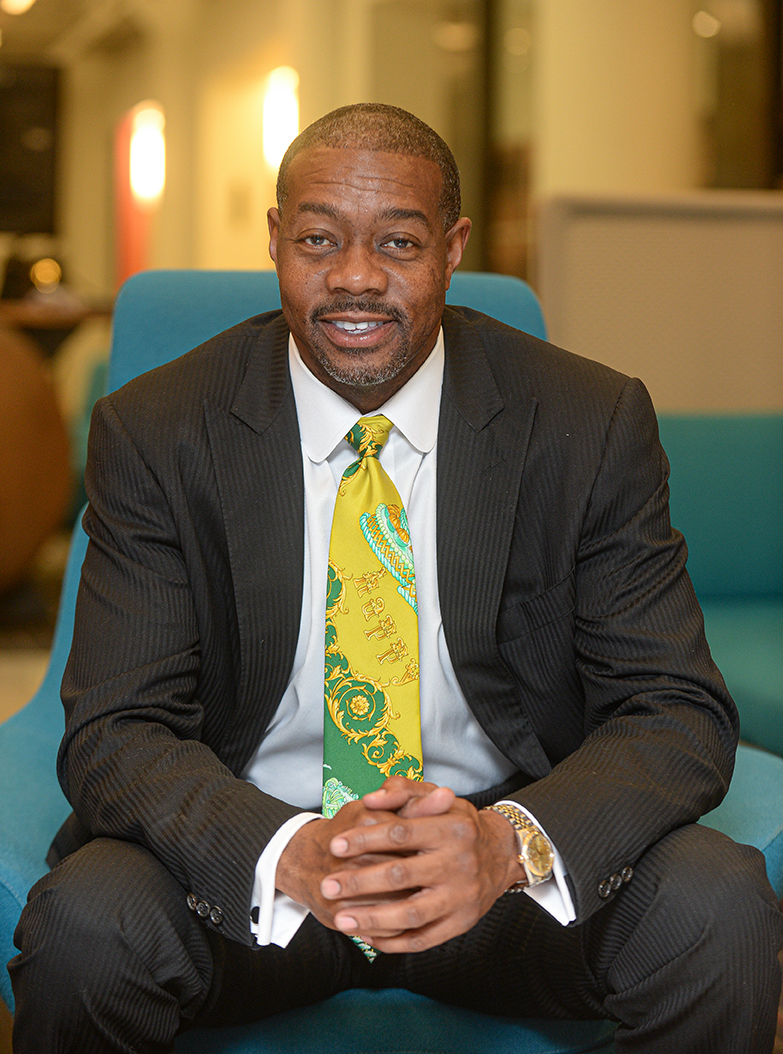Hutchinson Consulting, the industry’s leading executive recruiting, marketing, and consulting firm, has expanded its consulting division with exciting new team members. Here, Christopher Dennis, our new executive leadership coach, talks about his career evolution and explains why executive coaching can be vital in helping you grow and thrive both personally and professionally.
How did you begin your career in executive coaching?
I don’t believe in happenstance. My life journey, personal and professional, provides a natural maturation for me to be a vessel in the development and advancement of others. Reflecting on characteristics that attracted me to coaching, I reflect that early and throughout my life my parents nurtured confidence in me to hone my talents and to overcome challenges. I’m thankful they provided me that guided wisdom and it has stayed with me. In my coaching, I share their wisdom along with other things I’ve learned.
I’m fortunate and affirmed that various paths I’ve taken have afforded me opportunities to support others as a mentor and coach. As a coach, I gain as much as I hope to give as my clients. I love to celebrate their successes and find fulfillment in utilizing their goals and desires while developing their talents and transforming challenges to opportunities.
My life is celebratory because of the frequent wins I share in my clients’ successes. I believe I’m where I am supposed to be excelling at what I love to do. Coaching is my calling, my purpose, and my passion.
What is executive coaching?
Executive coaching, although multifaceted, fundamentally provides a deep dive derived from questions and tools that bring about personal insight. The energy of the “ah-ha” moments propels client’s forward through fears and trepidation and onto peak performance.
Leaders are inundated with ongoing evolving challenges. Motivating people to add new skills that produce options and agility is fundamental to success in our rapidly changing work environments. Let’s face it…change can be hard. Often, perspective makes the difference.
I agree with The International Coaching Federation (ICF) definition of coaching as “partnering with clients in a thought provoking and creative process that inspires them to maximize their personal and professional potential.”
As an executive coach, I seek to provide focus, direction, accountability, and fulfillment to individuals and teams to exceed their desired performance while advancing opportunities for them to have many successes.
What are the benefits of executive coaching?
I have a lot of confidence in ICF’s extensive research with scientists and educators in the behavioral sciences arena to develop a science-based, process-focused, outcome-driven system that results in sustainable change. Both personally and professionally, executive coaching helps identify patterns, establish goals, and develop and implement an action plan.
Executive coaching supports your company achieving organizational excellence and provides leaders tools and practices that elevate competitive advantage. Personal coaching provides the perfect balance acknowledging strengths and enacting new ways to respond to old cues. Simply put: coaching helps good leaders become great leaders.
What is the most vital element for business growth in the 21st Century?
For me, being sympathetically aware of and practicing emotional intelligence are vital elements for business growth in the 21st Century. Emotional intelligence is also a crucial factor as it relates to both professional and personal successes as well. We must be the change that we want to see around us.
Early in my work with executives who desire to be better leaders we discuss becoming aware of their own tendencies and triggers and how they can best manage those. Once these leaders acknowledge the need for tools and benefits derived that support their managing their own lives, they are more compassionate and better suited to be impactful successful managers and/or leaders of others.
Daniel Goleman tells us that the 4 basic elements to emotional intelligence are:
- Self Awareness
- Self Management
- Social Awareness
- Relationship Management
I open my coaching engagements with self-awareness and self-management. These two processes are key in building empathy, which for me is the number 1 characteristic of a successful leader.



